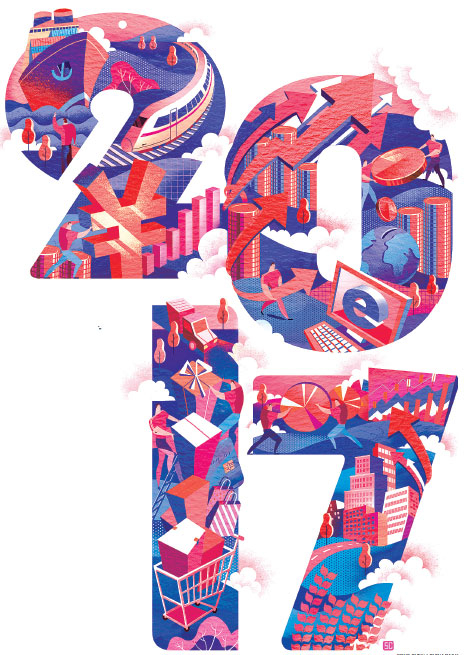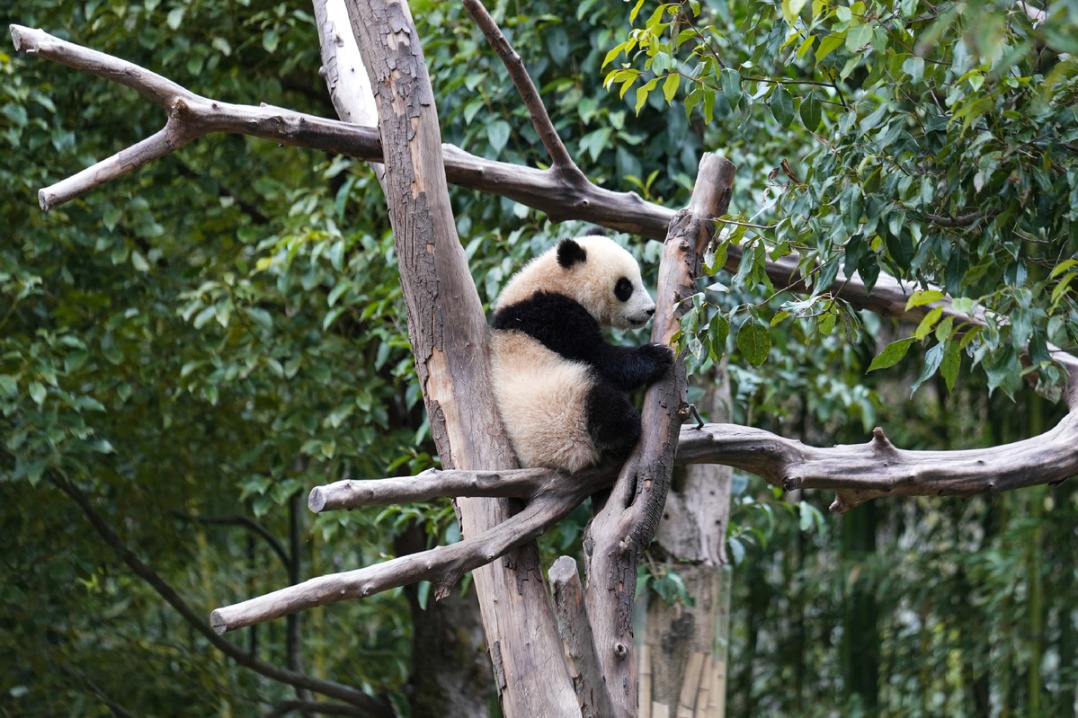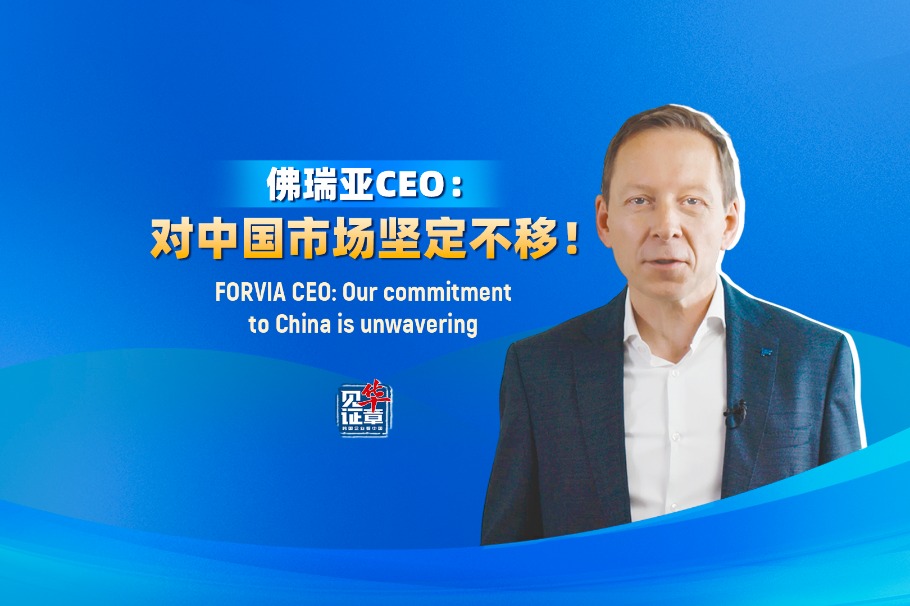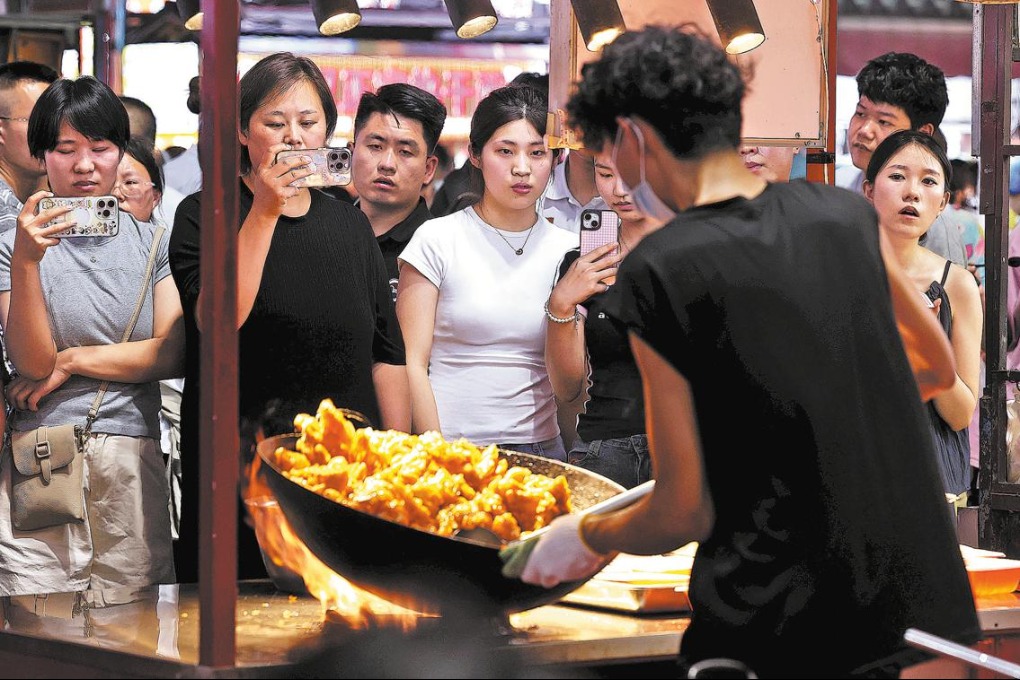Change to what?

As a year of massive political shocks ends, and one whose outlines could not be more in doubt is just beginning, Andrew Moody reports from Beijing.
The world economy is likely to face many challenges in the new year, not least an extraordinary level of uncertainty.
United States President-elect Donald Trump takes the oath of office on Jan 20 and has promised protectionist measures against China and a program of fiscal expansion.
Britain's negotiations on quitting the European Union are likely to begin in the spring around the time of French presidential elections, both of which could have major implications for the future of the EU.
So where does this leave China? The world's second-largest economy enjoyed a relatively benign 2016 with growth stabilizing at 6.7 percent in the first three quarters.

External events - not least the possible US tariffs on Chinese imports - could partly derail its economic progress.
The Chinese government made clear its own economic agenda at the Central Economic Work Conference, attended by senior leaders in Beijing, in December.
It set out six directions of policy: maintaining medium-to-high "new normal growth"; stability; supply-side reform; a new development concept focusing on innovation and the development of green technologies; improving quality and efficiency; and combining policies at both the macro and micro level that work for the good of the overall economy.
Vincent Chan, managing director and head of China research for Credit Suisse, who is based in Hong Kong, says that for the first three months of the year China will be trying to work out what the new policy agenda will be in the US.
"This is the major uncertainty. You have a situation where not just China but nobody else understands what this is going to be. Politics is going to be the big issue, which will influence the economics."
Chan, however, believes China's growth, assuming no major external shocks, should increase to 6.8 percent in 2017, 0.1 percentage up from the level achieved so far last year.
It will be notched upward by export growth of 8 percent, compared with the 6 percent contraction in goods and services sold overseas in 2016, he says.
"The current high levels of infrastructure investment at two and a half times the level of nominal GDP growth will keep the economy steady at 6.5 percent, and exports will give it an additional push this year."
Duncan Innes-Ker, regional director, Asia, of the Economist Intelligence Unit, based in London, says the Chinese economy will struggle to maintain its momentum in 2017. He believes growth will slow to 6.2 percent.
"What has driven growth in 2016, particularly in the second half, has been the construction sector, which has been related to the strength of the housing market," he says. (Property prices in the major cities have risen 30 percent over the year).
Innes-Ker believes the current credit growth of 20 percent a year, fueling debt, is becoming unsustainable.
He though thinks the government will wait until 2018 to tackle that, resulting in a hard landing, with growth slumping to 4 percent but recovering to 5 percent in 2019.
"If it doesn't, there would be severe strains in the financial sector that would be very damaging in the longer term," he says.
Louis Kuijs, head of Asia for the global advisory firm Oxford Economics, who is based in Hong Kong, thinks there will be no major change in economic policy until after the 19th National Congress of the Communist Party of China in November, when a new Standing Committee will be elected.
He believes policymakers will manage to achieve 6.3 percent growth.
"Growth will continue to rely on policy support in the form of fiscal expansion and, especially, generous credit growth. We do not expect policymakers to significantly slow the pace of credit expansion before the party meeting."
Edward Tse, founder and chief executive officer of the management consultancy Gao Feng Advisory, says he is not particularly worried about debt in the Chinese economy.
"It has never been proven what is a dangerous level of debt. I don't think right now China is at any major risk."
Tse, also author of The China Strategy and who is confident the economy will enjoy growth of between 6 and 7 percent in 2017, believes debates about investment in infrastructure becoming increasingly inefficient in terms of return miss the point.
"I do not believe they take into account all the multiplier effects of having a highly efficient transport system. They might say a high-speed rail line from point A to B is not worth it, but they fail to see the benefit from the point of view of the whole rail grid being improved by the additional line," he says.
Chan at Credit Suisse says the main worry about China is not the industrial economy but the financial system, as evidenced by the weakening of the yuan. In the year to November it had depreciated by a trade-weighted 8 percent.
"It is a measure to some extent of how important the Chinese yuan has become as a global currency," Chan says. "I think it is less important than the US dollar or the euro, but now more significant than either the Japanese yen or the British pound.
"You can see this with market behavior over the past two months responding to the yen falling by 15 to 20 percent. There has been virtually no reaction. When the Chinese yuan falls by just 2 percent everybody seems to worry."
The currency depreciation reflects concerns over rising debt in the system, shadow banking and bond market weaknesses, he says.
"It goes further than just being a matter of the exchange rate itself."
One of the major concerns is whether Trump is serious about imposing trade barriers on Chinese goods, such as the 45 percent tariff on imports proposed during the election campaign.
On Dec 22 the president-elect sent an ominous signal by appointing Peter Navarro to the new post of director of trade and industrial policy. Navarro, a professor at the University of California, Irvine, has been highly critical of China.
Wang Huiyao, president and founder of the Center for China and Globalization in Beijing, China's largest independent think tank, believes the rhetoric seems to ignore the reality of a globalized world that relies on very sophisticated supply chains.
"This means that the iPhone is assembled in China and products sold by Walmart in the US are sourced from China. If we suddenly move away from this then consumers will be hurt - the very consumers who now seem set against globalization by voting for Trump and Brexit.
"We still live in a globalized world, and that is a fact. We sink or swim together."
Tse, who is acknowledged as one of China's leading business experts, believes that instead of putting up barriers, the US could receive a jobs boost from Chinese manufacturing investment in the rust belt.
The Chinese automotive glass maker Fuyao opened a glass fabrication plant, which will be the world's largest, in Moraine, Ohio, in October and created thousands of jobs.
"There is no reason why a Trump government should not welcome this kind of investment because it is not taking jobs from America but adding them," Tse says.
However, he says, he is picking up sentiment from businesses that because of the uncertainty they may prioritize investment in locations on China's Belt and Road Initiative and not in the US or Europe.
Contact the writer at andrewmoody@chinadaily.com.cn

(China Daily USA 01/06/2017 page20)
Today's Top News
- China's railways hit record 2.24 billion passenger trips in H1
- Collection of Xi's articles on education, other two books published in Hong Kong
- Local govts urged to improve handling of hot spot issues
- China hailed as stabilizing global force
- BRICS currency creates dilemma for the dollar
- Climate not a contest for China, US





























